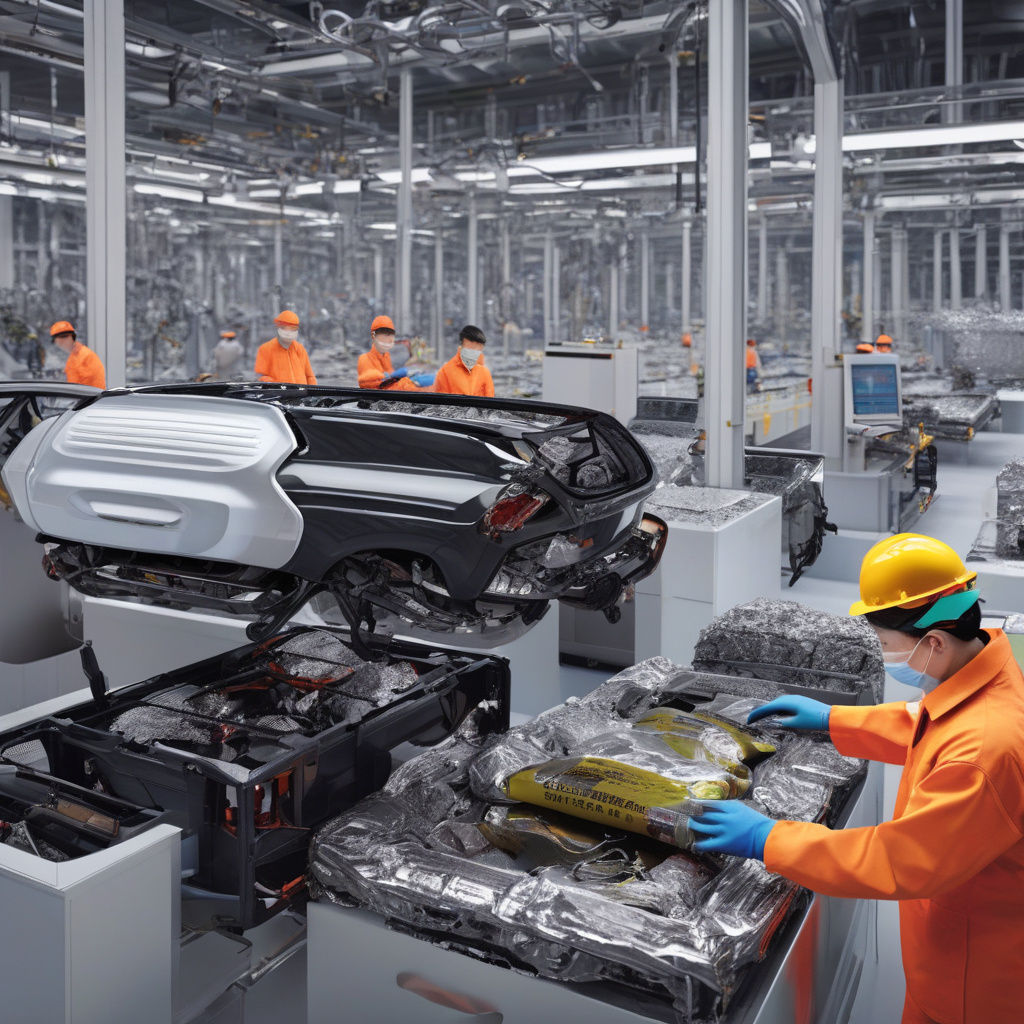China’s New EV Battery Recycling Rules Deliver 99.6% Material Recovery
China is expanding its efforts to make electric vehicle battery recycling more efficient and sustainable. The country has recently introduced new regulations that require battery manufacturers to retrieve and recycle at least 80% of the materials used in their batteries. This initiative aims to address the growing concern over the environmental impact of spent EV batteries and to promote a circular economy in the electric vehicle industry.
One of the key aspects of China’s new regulations is the target of achieving a material recovery rate of 99.6% for spent EV batteries. This ambitious goal sets a high standard for battery manufacturers and recycling facilities to maximize the reuse of valuable materials such as lithium, cobalt, and nickel. By implementing advanced recycling technologies and processes, China aims to reduce the reliance on mining for these finite resources and minimize the environmental footprint of EV battery production.
The importance of efficient battery recycling practices is underscored by the rapid growth of the electric vehicle market in China. With the government’s push to accelerate the adoption of electric vehicles as part of its clean energy initiatives, the number of EVs on the road is expected to increase significantly in the coming years. This surge in EV sales will inevitably lead to a corresponding rise in the volume of spent batteries that need to be recycled and disposed of properly.
By enforcing strict recycling targets and promoting the development of a robust battery recycling infrastructure, China is setting a positive example for other countries looking to address the sustainability challenges associated with electric vehicle batteries. The country’s proactive approach to battery recycling not only helps to conserve valuable resources but also reduces the environmental impact of extracting raw materials and manufacturing new batteries.
In addition to the environmental benefits, efficient battery recycling also presents economic opportunities for businesses involved in the recycling and recovery of EV battery materials. As the demand for electric vehicles continues to grow globally, the market for recycled battery materials is poised to expand, creating new revenue streams and job opportunities in the recycling sector.
Furthermore, by establishing clear guidelines and regulations for battery recycling, China is fostering innovation in the development of new recycling technologies and processes. Companies that invest in research and development to improve the efficiency and effectiveness of battery recycling stand to benefit from the growing demand for sustainable recycling solutions in the electric vehicle industry.
In conclusion, China’s new EV battery recycling rules set a high bar for sustainability and efficiency in the electric vehicle industry. By mandating high material recovery rates and promoting the development of a circular economy for EV batteries, China is leading the way in advancing sustainable practices in the automotive sector. As other countries look to ramp up their efforts to address the environmental impact of electric vehicle batteries, they can draw inspiration from China’s proactive approach to battery recycling.
recycling, EV, China, sustainability, circular economy












